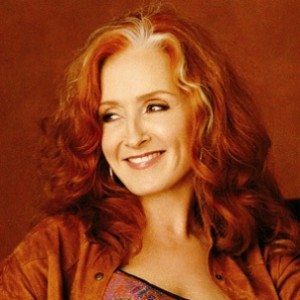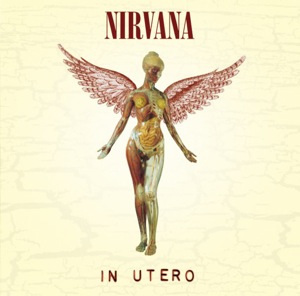
If you happen to have looked at my blog this weekend, you know I was on a mini vacation. While there, I found (not really found since I knew it was there from last time) a used CD store. It is kind of like Amoeba in LA, but not as big, and seems to specialize in classic rock, which was exactly what I was looking for. Many of my old CDs have gotten scratched up, and even more albums I have never replaced after tapes became obsolete. I have now replenished my Billy Joel collection (another blog post altogether), found a few other things I was missing, and bought Bonnie Raitt’s Nick of Time album. I haven’t listened to it in about twenty years, and despite it being one of my favorite tapes on repeat for the better part of the early 90’s (yes, I was playing stuff on repeat then too), after the tape broke circa 1994 I never did anything about it. For as much as I loved Bonnie, I sadly threw the tape away almost as if it never occurred to me that I could get another one.
There have been several times I ran into her old albums when CD stores still existed, but I always passed them up. First, I was kind of anti CDs for a little while. I had 200+ tapes, and I staunchly protested giving them up. CD players had been around for a while, but I didn’t have one, so as far as I was concerned they were potentially dangerous magical instruments. While tape players worked on the principles of magnets (tangible concepts I could understand), the CD player had a weird glass eye staring at you. No thank you.
I finally broke down and asked for a CD player for my 17th birthday. My first CD was Soundgarden’s Superunknown, followed by Marilyn Manson’s Antichrist Superstar, and The Best of Blondie. I didn’t buy another CD until half my tapes were falling apart and my tape player eventually died. I am not counting any of S’s CDs since he was even more anti-CD than I was, and his collection for the longest time expanded no further than Nirvana and a few other 90’s iconic bands. His tape collection, however, shamed mine. He also kept his tapes in far better condition (probably because he didn’t continuously rewind them with his little finger in attempts to hear the same song over and over again ad infinitum). But a dead tape player still meant that we were both done. And just like with the Bonnie Raitt album years earlier, for whatever reason I sadly got rid of the player never considering that we could get a new one. Slowly but surely the CD conversion began (and is very much still not finished).
This morning I was listening to Bonnie Raitt while driving. How appropriate. My fascination with Nick of Time started shortly before I moved to California. It was 1990 and the album had just come out less than a year before. One of our neighbors was moving. She was having coffee with my mom in our living room when she told me she had a bunch of tapes she thought I would like (she may have gotten tired of hearing Madonna through the walls). Bonnie Raitt was mixed in a decent sized box with Creedence Clearwater, Morrissey, the Smiths and many more, solidifying my appeal for 80’s music. Not long afterwards it was our turn to move, and as my parents drove us from New York to California in a Dodge Something-or-other I was insistent that I only wanted to hear Bonnie Raitt. My mother didn’t exactly dislike the album, and considering that it was either Bonnie or static, Nick of Time won.
For almost a week my parents took turns driving day and night (and the $900 Dodge Something-or-other they bought in New Jersey died only a few weeks after making it to California). During waking hours (a description that varied from one day to the next since someone was always awake) Bonnie could be heard in the car, which I take to be less of an indication of my love for her music as a reflection of my parents’ patience for me. We arrived in LA mid July, and by December Bonnie was mixed in with the other favorites while another band took the “absolute favorite” spot. And just like all the other favorites, over the years she emerged again and again to be replayed until shuffled back. Then the tape died and her songs became only memories attached to specific parts of my life (and I still remember every single word from that album). Occasionally the radio would play her, but never the really good songs, just the popular ones like “Let’s Give Them Something to Talk About,” that is good, and catchy, but not great. The best definition I would have for that song is “cutesy” which is not to say I don’t enjoy singing along to it, or that I don’t turn the radio up when it comes on, but it doesn’t get me to ask questions or even think very much. Again, not a bad thing – there are plenty of songs I love simply because they sound good, even as their lyrics are asinine or unintelligible. But songs like “Nobody’s Girl” never made it on the top 40’s lists.
As I was listening to the CD today the songs took on a different meaning for me (as such things often do with time), and I was no longer a child (or later a young girl) mesmerized by the passion in her voice, but a woman analyzing her lyrics, and reading into them in ways Bonnie probably never intended. One part from “Love Letter” specifically stood out.
Part of the song:
Sittin’ in front of your house,
Like rain in early dawn
Workin’ on a love letter
Got my radio on.
Got my eye on your window pane
And I smoked a lot of cigarettes.
Mercy, mercy but love is strange
And you haven’t even kissed me yet.
Look comes to push,
Push comes to shove,
Shove comes to touch,
Touch will come to love.
Workin’ on a love letter,
Listenin’ to a love song,
I’m writing you a love letter, love letter,
Got my radio on…
Hope you get the message baby.
I know that you’re gonna let me in.
It’s real in your neighborhood
And this is more than I’m gonna bend.
I couldn’t help but wonder if Bonnie (Bonnie Hayes, not Bonnie Raitt actually wrote the lyrics) was amused by writing a love song in which Bonnie will be singing about writing a love letter while listening to a love song. In the world of this song, do other love songs exist? Is the first person narrator, who is presumably sitting outside this man’s house in a car, aware of her existence within a song? Or is the song simply a narrative of an event and we are supposed to ignore these implications (as I am highly suspicious that this is in fact the case)?
None of this occurred to me the first bajillion times I heard these lyrics. It was always just an upbeat enjoyable love song (despite its creepy stalkerish implications reminiscent of the Police’s “Every Breath You Take,” but not as bad as Morrissey’s later “The More You Ignore Me, the Closer I Get”). But today, the song, at least for me, entered the realm of metafiction, existing in a limbo between self awareness and refusal to acknowledge itself as she continued on about the man’s neighborhood in the vocal equivalent of a scene in a dark comedy where the actors are watching Burn After Reading, blatantly ignoring the parallels within their own existence.
Yet this song begs for parallels to be drawn. Nowhere does it mention what love song she is listening to, leaving the listener to fill in the blanks. What contemporary (or older) love song on the radio could have acted as her inspiration? Was it simply inspiration for her make-believe love letter, or did it influence the entirety of her song? Or was it just the idea of such a song even existing that sparked everything? Could it be that this song would later serve to influence future love letters? None of these questions really have answers because any answer would suffice. Both Bonnie Raitt and Hayes have done numerous interviews mentioning this song, with nothing more said about it other than lauding its success. Which I suppose speaks to the fact that it probably did inspire love letters (for better or worse) – an argument that can be made for almost every song ever written, as surely somewhere someone is listening to Slayer’s “Angel of Death” and carving their sweetheart’s name into the side of their arm.
However, in “Love Letter” the metacognition is muted by the immediacy of the lyrics where the action is taking place in the now, and every love song that could possibly be playing in the background of this song flashes by as we move on to the next part of the narrative, only to be reminded of it again in even vaguer terms; a “love song” specifically turns into “radio” that could be anything. If the inspiration for those lines was in fact another love song, that information never became public knowledge. Basically whether Hayes liked listening to The Bangles’ “Eternal Flame” (that had just come out) while writing “Love Letter” and inserted it into the inner background of the song’s imagery to draw some sort of possible comparison (yet to be determined) is just as likely as any of the assumptions made about Mitchell’s Cloud Atlas. And just like Mitchell’s overt use of the style, I like to think Bonnie (Hayes and Raitt) “hope you get the message.” And maybe chuckled at it a bit.

